
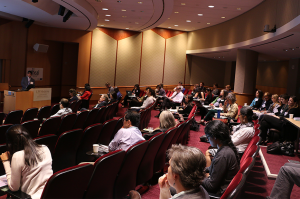
The May 23 Injury-related Health Equity Across the Lifespan (iHeal) Symposium featured a national conversation about health equity – and what doctors, researchers and academics can do about it. Drs. Monica Vavilala, Megan Moore, and Molly Fuentes welcomed partners from across the country and WWAMI region to discuss current research and gaps as well as develop a national agenda for injury-related health equity. The symposium and public lecture launched the iHeal program at HIPRC, which will be led by core faculty member Megan Moore.
Speakers from a variety of disciplines and community organizations considered many facets of health equity, from its roots and impacts to the best approaches to study health disparities, particularly as these relate to injury. Keynote speaker Dr. Ana Núñez highlighted the importance of understanding our own biases and striving to treat patients how they want to be treated.
Several speakers highlighted the many factors that can influence disparities in health outcomes. While race and socio-economic status are frequently analyzed in relation to health disparities, other factors include gender, age, access to trauma centers, geography, education level, language and many more.
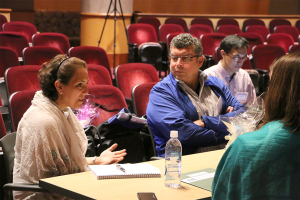
For example, HIPRC core faculty Dr. Fred Rivara pointed out marked differences in rates of homicides, suicides and pedestrian injuries between demographic groups. Suicides are more common in rural areas than in urban areas. Pedestrian injuries are highest for people from low socioeconomic backgrounds. He noted that a number of possible factors may influence these outcomes.
Another common theme in the proceedings was the importance of partnerships, both within the field of medicine and with impacted communities.
Dr. Tumaini Coker, director of research at the Center for Diversity and Health Equity at Seattle Children’s Hospital, said the communities affected by health disparities should be included as early as possible when developing research, projects or interventions around health equity.
“If they didn’t create it, or ask for it, or need it, it’s hard for them to be engaged,” she said.
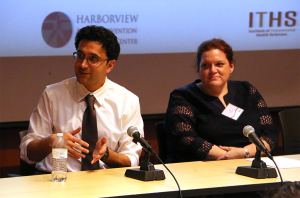
Harborview Injury Prevention and Research Center’s Dr. Beth Ebel said tribal partners played a vital role in the Native CARS program, which led to increased use of seatbelts and car seats for Native American kids in Washington.
University of Washington leadership, including UW Medicine Chief Medical Officer Dr. Carlos Pellegrini, Chief Diversity Officer of the UW Center for Health Equity, Inclusion and Diversity Dr. Leo Morales, UW Graduate School Associate Dean Gino Aisenberg, Ph.D., and Executive Director of Harborview Medical Center Paul Hayes, RN, also discussed the university’s mission to become a national model for medicine. They highlighted some of the systematic initiatives striving to make UW Medicine and Harborview Medical Center effective and inclusive for all.
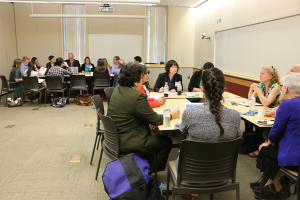
The day concluded with work group discussions led by HIPRC core and associate members around equity in medical research, including data and research methods, innovative and collaborative research, and translation of research into policy and practice.
Additional takeaways included:
“Equality is the cornerstone of medicine.” – Featured speaker Dr. Adil Haider, Kessler Director, Center for Surgery and Public Health
“Good intentions aren’t the same as good outcomes.” – Keynote speaker Dr. Ana Núñez, Dean for Diversity, Equity and Inclusion, Drexel University
“When we use the term discrimination, we often think of individual people and individual actions. […] We have to think about racism as a system that creates inequality.” – Hedwig Lee, Ph.D., associate professor, UW Department of Sociology
“Data matters, but the lens you use to look at the data is just as important, or sometimes more important.” – Rose James, Ph.D., director of evaluation and research, Urban Indian Health Institute
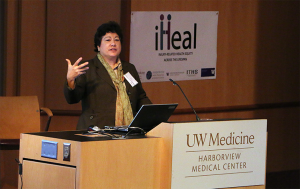
iHeal was supported by the Institute of Translational Health Sciences, the Harborview Injury Prevention Center, the University of Washington School of Social Work and School of Medicine, and the Harborview Medical Center, and was led by HIPRC core faculty Megan Moore, Ph.D., and associate member Dr. Molly Fuentes.
Speakers:
Panels:
“Emerging Research and Hot Topics in Injury and Health Equity”
“Challenges and Solutions to Building Partnerships to Achieve Health Equity”
Work Groups: